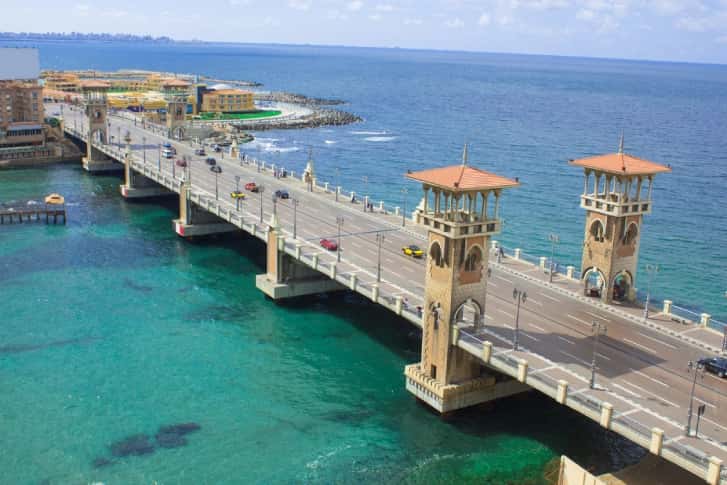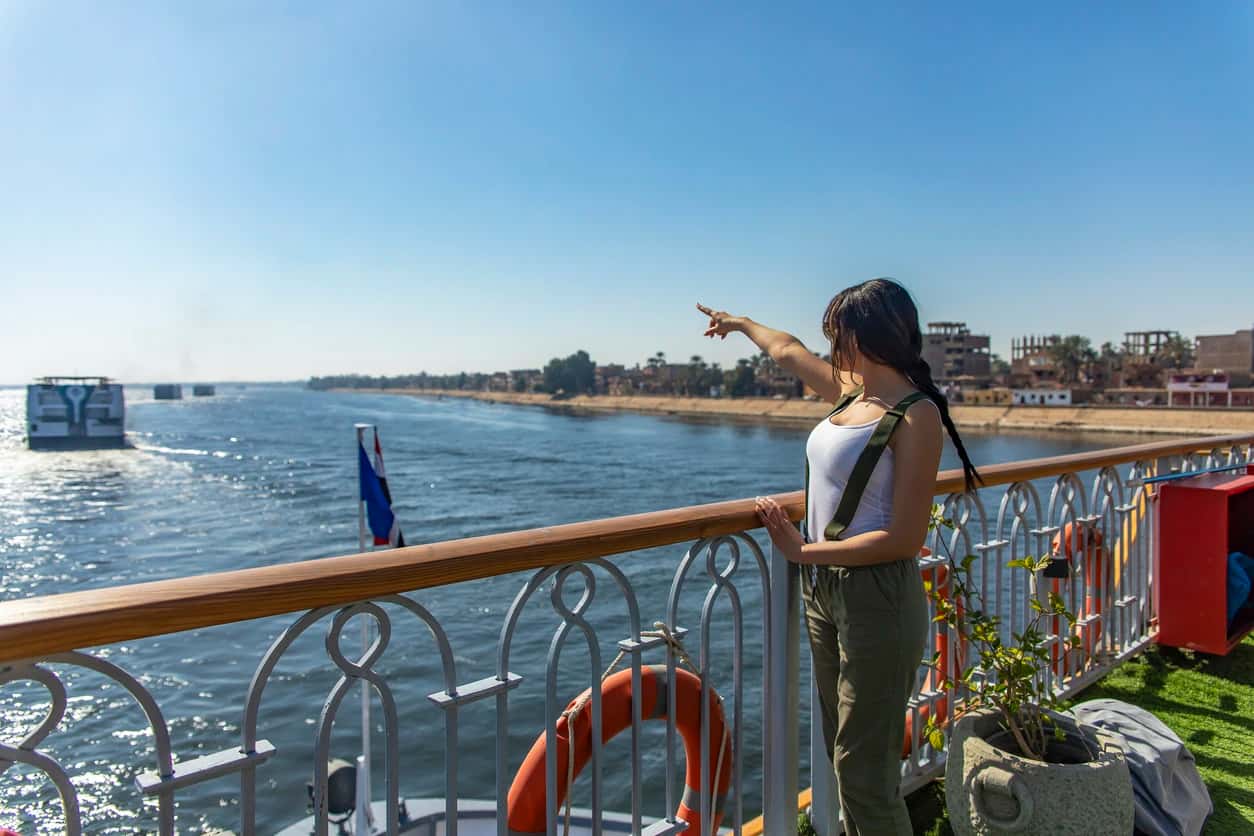
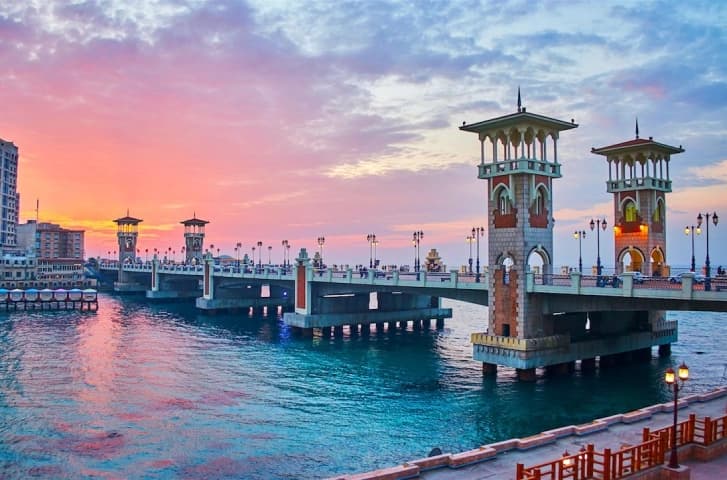
Walk through time in Alexandria Egypt, a city shaped by Greek, Roman, and Arab influences. It’s alive with culture, flavor, and character.
1- Historical Significance of Alexandria
2- What Makes Alexandria City Egypt Unique
3- Top Attractions in Alexandria's Old Town
4- Offbeat Experiences and Local Culture
5- Tips for Visiting Alexandria, Egypt
6-Conclusion Discovering Alexandria: A Blend of Ancient and Modern
7- FAQs
Alexandria, Egypt's second-largest city, stretches along the Mediterranean coast and was founded by Alexander the Great in 331 BCE. Once a hub of culture and learning, it housed the Lighthouse of Alexandria and the Great Library. Today, the city blends historic landmarks like the Qaitbay Citadel with lesser-known sites, including 19th-century architecture, art galleries, and traditional seafood markets. Alexandria offers a unique mix of ancient and modern, making it a must-visit for history lovers, foodies, and explorers alike.
Come for the legends. Stay for the soul. This is Alexandria—timeless, tantalizing, and waiting to be discovered.
Alexandria, once Egypt's capital, was a key center of culture, commerce, and scholarship, linking Eastern and Western civilizations. Shaped by Greek, Roman, and Arab influences, its legacy is reflected in its architecture, cuisine, and culture. The Lighthouse of Alexandria, one of the Seven Wonders of the Ancient World, symbolizes the city's historical significance, even though it no longer stands.
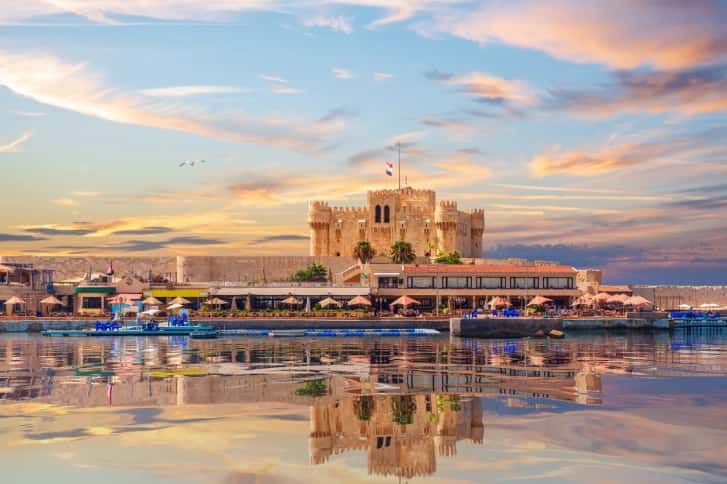
Alexandria is a unique blend of Greek, Roman, and Egyptian influences, seen in sites like the Catacombs of Kom el-Shoqafa, where Egyptian burial traditions merge with Greco-Roman art. The creation of the Graeco-Egyptian god Serapis highlights the city’s role as a center of intellectual and spiritual synthesis during the Hellenistic era.
Historically, Alexandria connected Egypt to the Mediterranean, preserving Hellenic culture and later becoming a center for early Christian thought. Despite myths of decline after the Arab conquest, it remained vital for trade and production. Today, Alexandria is Egypt's "second capital," playing a key role in the nation's economy and cultural identity.
Alexandria’s Old Town is a historic quarter filled with landmarks that reflect the city’s layered past.
stands as a grand Roman monument honoring Emperor Diocletian, offering panoramic city views.
reveal a unique blend of Egyptian, Greek, and Roman burial traditions, making it one of Egypt’s most important archaeological sites.
housed in a restored Italian-style mansion, traces the city’s history from ancient times to the modern era.
revives the spirit of the ancient library as a modern center for learning and cultural exchange.
once a royal retreat, offer lush greenery and Mediterranean views.
the city’s seaside promenade, provides scenic walks, sea breezes, and a taste of local life.
Founded in 1892, the Greek Roman Museum showcases Alexandria’s rich Greco-Roman heritage through over 6,000 artifacts, including sculptures, pottery, and coins. It provides a fascinating glimpse into the city’s cultural evolution, blending ancient Greek and Roman influences.
The 15th-century Qaitbay Citadel, built on the site of the ancient Lighthouse of Alexandria, offers stunning sea views and a small museum. It stands as a symbol of Alexandria’s historical strength and resilience.
The Alexandria Roman Amphitheatre, discovered in the 1960s, was once a venue for public performances. With its excellent acoustics and serene setting, it’s a well-preserved piece of Alexandria’s Roman legacy.
Once home to Egypt’s kings, Ras el-Tin Palace stands as a grand symbol of royal opulence. Although the interior remains closed to the public, its breathtaking architecture and lush gardens are well worth the visit
This mosque is a stunning example of Islamic architecture, with its impressive domes and delicate minarets. It’s not just a place of worship, but a monument to Alexandria’s Islamic heritage and artistic traditions.
Located near the iconic Qaitbay Citadel, the Alexandria Aquarium offers a fun, family-friendly experience. It’s home to a wide variety of marine life from both the Mediterranean and Red Seas, offering a fascinating look into the region's underwater ecosystems.
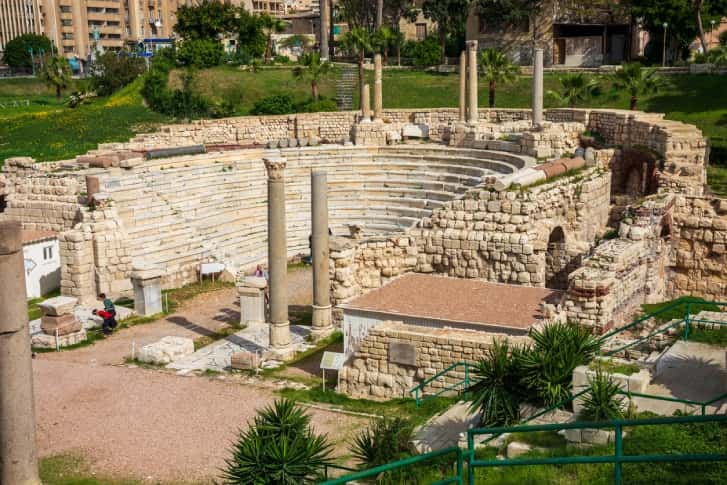
Alexandria’s true essence lies in its hidden spots, unique flavors, and rich traditions.
Teatro Iskindrya offers a nostalgic experience with vintage decor and music, while Rooftop Ramsis offers stunning views of the city and Qaitbay Citadel.
The iconic kebda eskandarani, a spiced liver dish, and the bustling Souk El Attarine, full of spices and antiques, reflect the city’s vibrant culinary and market culture.
The beautiful Abu al-Abbas al-Mursi Mosque and St. Mark’s Cathedral showcase Alexandria’s diverse religious heritage.
Enjoy sunbathing and water sports at Maamoura and Montazah Beach along the Mediterranean coast.
Explore the city’s diverse culinary scene, offering Mediterranean, Middle Eastern, and North African flavors, with fresh seafood and traditional Egyptian dishes.
Alexandria has something for every shopper, from traditional crafts to contemporary fashion, from local markets to modern malls.
To make the most of your time in Alexandria, a few practical tips can go a long way in enhancing your experience.
Spring (March to May) and fall (September to November) offer the best weather for outdoor activities, with pleasant temperatures. Summer can be hot and humid, while winters are mild with occasional rain.
Alexandria is easily navigated by buses and taxis, but the Old Town is best explored on foot to truly soak in its historic charm. For longer distances, consider using ride-sharing apps or hiring a local guide for convenience.
Dress modestly, particularly when visiting religious sites, and be aware of photography restrictions in certain areas to respect local customs.
These tips will help ensure a smooth, enjoyable visit to Alexandria, letting you make the most of this captivating city.
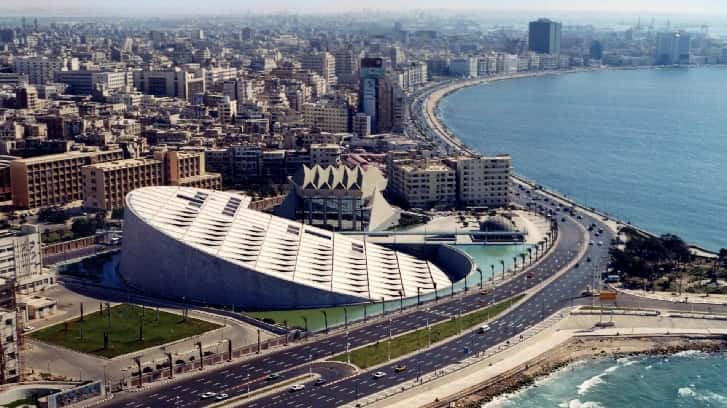
Alexandria, where ancient history meets contemporary life, offers a rich blend of Greek, Roman, and Arab influences. Visit in spring or fall for ideal weather, or summer for beach fun. The city’s easy-to-navigate tram and microbus system makes exploring a breeze.
Beyond famous sites like Qaitbay Citadel, Alexandria’s charm lies in its hidden spots—cafés, markets, and local dishes like kebda eskandarani. The city’s unique atmosphere, filled with history and culture, creates a lasting impression. Whether you're a history buff or just curious, Alexandria will captivate you. Ready for your adventure? Plan your visit today!
Like all main cities in Egypt, Alexandria is a very safe destination for tourists.
Alexandria was best known for the Lighthouse of Alexandria (Pharos), one of the Seven Wonders of the Ancient World; its Great Library, the largest in the ancient world; and the Catacombs of Kom El Shoqafa, one of the Seven Wonders of the Middle Ages.
Alexandria was founded by Alexander the Great in April 331 BC as Ἀλεξάνδρεια (Alexandreia), as one of his many city foundations. After he captured the Egyptian Satrapy from the Persians, Alexander wanted to build a large Greek city on Egypt's coast that would bear his name.
Alexandria offers buses, minibusses, trams, and taxis for convenient city travel.
Visit attractions like the Bibliotheca Alexandrina, Fort Qaitbay, Catacombs, stroll the Corniche, explore Montazah Gardens, and check out the National Museum or Roman Amphitheater.
Yes! Alexandria blends Mediterranean charm and rich history, with sunny coastal views and a cultural legacy from its founding by Alexander the Great.
Two days are ideal to explore key attractions, enjoy local cuisine, and discover hidden gems.
Try the local 'kebda eskandarani' street food, visit hidden cafes like Teatro Iskindrya, explore Souk El Attarine for spices and crafts, and enjoy a sunset at a rooftop cafe by the Mediterranean.
